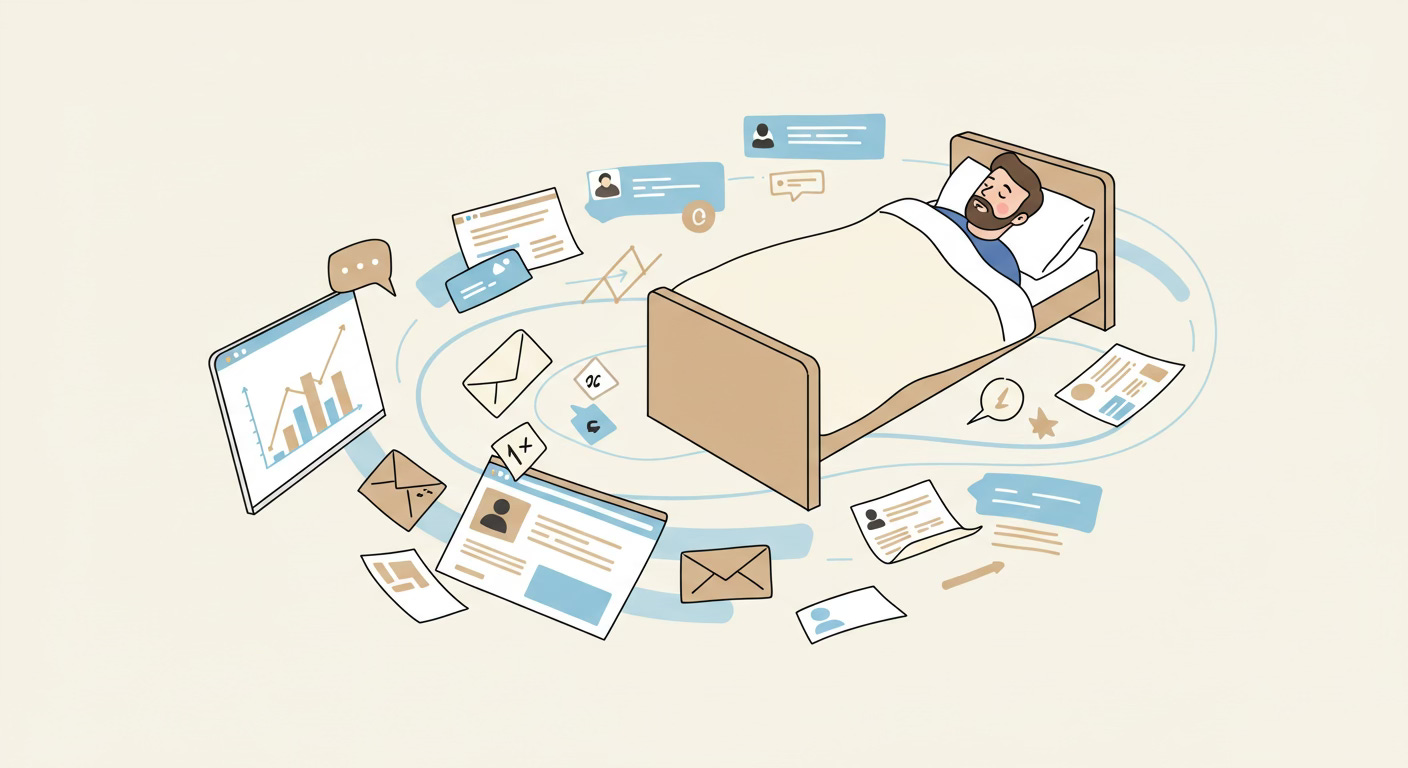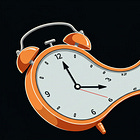Sleep like your business depends on it 🛏️
How 8 hours became the most underrated growth strategy
Over 30 Millennial Masters episodes in, I’ve asked almost every founder what keeps them sharp. Most say habits and routines, but lately, one answer keeps coming up: sleep.
More entrepreneurs are admitting that it’s not optional. Sleep is the one thing that makes everything else work.
I’ve always tried to get my eight hours. When I’ve skimped on it, nights out, long travel days, busy periods, I’ve felt worse for it, every time.
But I’m still a night owl, and I tend to work late, think late, wind down late. That’s why I had to learn how to prioritise rest without pretending I’m built for 9:30pm lights out.
I’ve read the research, spoken to the founders, tested the tactics. Here’s what actually worked (and didn’t): 👇🏻
Build your business with your eyes shut
Rob Smith, co-founder of Arrowtown Drinks, said: “I’m always prioritising my sleep, to a lot of people as well, because I always just want to go to bed. I normally push for more. I think you’re only as good as your health. So I have to try and remain charged and actually have the energy to be as productive as I can be.”
That word, charged, stood out for me. Because founders are constantly told to push through, power on, grind harder. But none of that works if you’re running on fumes.
Liam White, co-founder of Dr Will’s, goes a step further. He tracks every detail with his Whoop band and adjusts constantly: “I’m very good at sleep. Almost always, I get eight hours and that’s eight hours of actual sleep. I’m trying not to do the kind of the thing where you sleep barely in the week and then you sleep loads at the weekend. Not doing that, but if I get an opportunity, I’ll take an extra hour of sleep and lie in a little bit and just catch up.”
And yes, he’s read Matthew Walker’s book (more on that in a bit): “That deep sleep is pretty much the most important thing. If you read Why We Sleep, just having deep and REM sleep is so important. So I’ll do everything I can to maximise it.”
Tom Hutchinson-Smith, a personal trainer (Straight Line PT) who works with high-performing CEOs (episode coming soon), put it like this: “We have to give ourselves enough time to wind down in the evening and to actually reduce the amount of blue light exposure that stimulates the brain. And that’s why often a lot of entrepreneurs always report that they struggle to switch off at night. And those things definitely don’t help.”
When I asked him how much sleep founders actually need, not just lying in bed scrolling, he made the distinction clear: “You realistically want to be in bed for at least eight hours to give yourself something between six to eight. If you are really wired and you go to bed for six hours, you're more likely going to be probably five or less, which means nobody operates really that well on it.”
Sleep debt collects interest
Every night you cut corners, your body loses ground.
Most people don’t notice the cost of bad sleep until it compounds. You’re slower, moodier, and less creative. Sleep debt makes your day harder, and over time it changes how your brain and body operate.
Matthew Walker, author of Why We Sleep, says sleep deprivation can damage everything from memory to immunity. One night of four or five hours of sleep and your natural killer cells, the ones that attack cancer cells, drop by 70%.
It affects your DNA. It lowers testosterone levels to that of someone ten years older. It impairs memory by 40%.
As Walker says: “The shorter your sleep, the shorter your life.”
Neuroscientist Russell Foster explains that deep sleep isn’t passive, but it helps the brain consolidate memory and problem-solve: “Our ability to come up with novel solutions... is hugely enhanced by a night of sleep.”
Poor sleep also hits your emotional intelligence. Sleep scientist Dan Gartenberg puts it clearly: “Poor sleep is a drain on our capacity for empathy.” And when you’re running a team, raising money, or negotiating deals, that stuff matters more than your caffeine routine.
6 tactics to sleep better, backed by science
These are the tactics sleep scientists swear by, and I’ve tested most of them. Some stuck, some didn’t. Here’s what works (and what’s worth trying anyway):
1️⃣ Same time every night
The science is clear: your body likes routine. Going to bed and waking up at the same time every day, even weekends, helps regulate everything, from your hormones to your mood. It’s boring advice, but it works.
2️⃣ Keep it cool: 18°C is ideal
Walker swears by 18°C. I do too. My thermostat sits next to my bed and stays at 18 (64 in Fahrenheit) year-round. Cooler temperatures help the body drop into deep, restorative sleep faster.
3️⃣ No screens before bed
Guilty! I still scroll, but I don’t usually struggle to fall asleep. If you do, the blue light from phones and laptops can mess with melatonin, the sleep hormone. An hour of tech-free wind-down actually works.
4️⃣ Rethink the nightcap
Even one drink, Matthew Walker says, fragments sleep and blocks REM. I know this. I’ve read the research. Still, I’ll sometimes pour one… can’t win them all.
5️⃣ Don’t dismiss naps
I’ve never loved daytime naps. But on holiday or during long travel days, the coffee nap (drink a quick espresso, lie down for 20 minutes) actually works. It’s the only kind of nap I’ve found useful.
6️⃣ Try pink noise, not white
White noise can be too sharp. Pink noise, like rainfall, waves, or rustling trees, has a gentler frequency. According to Dan Gartenberg, it boosts deep sleep and helps memory retention. I’ve used it while travelling and it can help.
Sleep makes everything else work
You don’t have to overhaul your routine overnight. But start by taking it seriously.
Notice how you feel after a full night. Give it a few days, then see how much faster, sharper, and clearer your days get.
You don’t need to become strict about it. A small shift is often enough, and you’ll feel it quickly. Better days start the night before.
Don't underestimate the power of a walk 👣
Any form of exercise activates your brain, but walking holds a unique superpower. It’s not just good for your body, it’s a proven creativity booster too.








Great article!